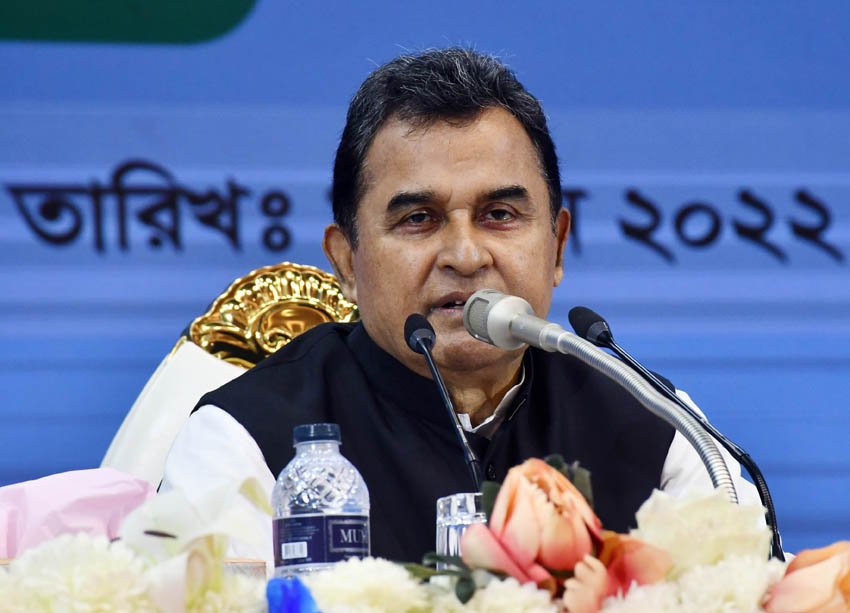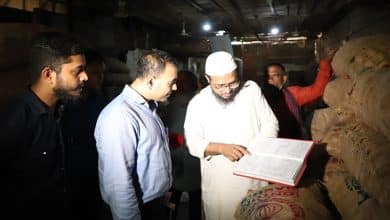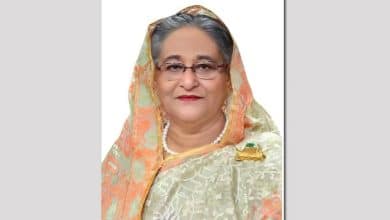New budget to make economy more dynamic: Finance Minister

Noting that the country’s economy would be more dynamic through implementation of the proposed budget for fiscal 2022-23 ( FY23), Finance Minister AHM Mustafa Kamal today said this budget would also be helpful for the marginal people since the poor class has been duly prioritized.
“This budget for the next fiscal year will be helpful for the marginal people …all of those including the businessmen and the hard-earned people will be benefitted from it and we’ve prepared the budget in such a way,” he said.
The Finance Minister also claimed that the people of the country were not cheated over the last three years of his term as he has fulfilled whatever he pledged. “We’ve framed this budget considering each and every poor people,”
Kamal said this while responding to a volley of questions at a post-budget press conference held at the Osmani Memorial Auditorium in the capital.
Agriculture Minister Dr M Abdur Razzaque, Education Minister Dr Dipu Moni, Health Minister Zahid Maleque, State Minister for Finance Dr Shamsul Alam, Bangladesh Bank Governor Fazle Kabir, Finance Division Senior Secretary Abdur Rouf Talukder, NBR Chairman Abu Hena Md Rahmatul Muneem, Financial Institution Division Secretary Sheikh Mohammad Salim Ullah, Planning Division Secretary Prodeep Ranjan Chakrabarty and ERD Secretary Fatima Yasmin were present at the press conference.
Besides, minister, state ministers, secretaries and other high officials from different ministries and divisions were also present.

Kamal placed a Taka 6,78,064 crore proposed budget for the next fiscal year at Jatiya Sangsad yesterday (Thursday) eying a 7.5 percent growth and containing average inflation at 5.6 percent.
The Finance Minister said that the development-oriented thoughts have been prioritized in the proposed budget highlighting the desires and expectations of the commoners.
“The next budget will go through a tough time as there will be many ups and downs. We’ll be able to be successful by overcoming all the barriers, Insha Allah. We want to move ahead taking the countrymen with us,” he added.
Kamal mentioned that when the whole of the world was affected due to the impacts of the COVID-19 pandemic, no organ of Bangladesh was affected while all the macroeconomic indicators were in good shape.
When asked about the integrated efforts from the government to deal with the price hike of essential commodities, he said that the governments render its efforts so that there is no mismatch between demand and supply.
He said although the overall budget size has decreased in percentage to GDP compared to the outgoing fiscal year, the government did not transfer its focus from expansionary monetary policy to contractionary monetary policy.
The Finance Minister claimed that the price of the locally produced items is now less, but the prices of imported products depend on the fluctuation of global market prices.
“But, I’m giving assurance that the instability in the market won’t persist for long. The government will definitely have some efforts and the government is also committed in this regard. The government won’t fail in this area. We’ll be able to deal with it taking alongside all,” he said.
When asked whether the initiative for giving amnesty to some Bangladeshis in legalizing their unreported assets abroad through providing tax would become successful, Kamal said that the government is not terming this as ‘black money’ rather as ‘undisclosed money’. “We’re trying to bring back that undisclosed money,”
He said that tax amnesty is not a new concept and Indonesia had brought back some $9.6 billion from abroad by giving such scopes in 2016.
“In giving such facility, we won’t raise any question and none will be questioned. Sometimes the money and assets become undisclosed due to the system,” he said.
Elaborating on the issue, the Finance Minister informed that some 17 countries of the world including USA, Canada, Germany, France, UK, Norway, Indonesia and Malaysia have given such amnesty.
“Sometimes there is mismatch, I have never told that there is no siphoning of money. Rather, cases have been filed against the accused and many of them have already landed in jail….we’re trying to bring back the money which has been laundered,” he added.
He also hoped that all concerned would avail themselves of such opportunity in the next budget and thus send back their money and assets to the mainstream of Bangladesh economy. “It’s my belief and they won’t be questioned. But those involved in Hundi will always remain in fear. The only one path is to abide by the government rules and regulations,” he added.
Replying to another question, Kamal said he is hopeful of deportation of former NRB Global Bank MD PK Halder from India.
Bangladesh Bank Governor Fazle Kabir said that the Bangladesh Financial Intelligence Unit (BFIU) is responsible for investigating money laundering, suspicious transactions, and cash transaction reports and it is performing its duty properly.
In the proposed budget, the government offered Bangladeshis a scope for legalising their unreported assets outside the country without facing any questions in the next fiscal year.
They will have to pay taxes ranging from only 7 to 15 percent in order to avail of this opportunity.
The opportunity will be in force starting from the first day of the new fiscal and will end on June 30, next year.
NBR Chairman Abu Hena Md Rahmatul Muneem said that through such amnesty, the Bangladeshis living abroad would be able to show and update their assets in the tax returns.
Supplementing on the issue, Agriculture Minister Dr Abdur Razzaque said since the Awami League government is a constitutional government and it abides by the rule of law, hence this amnesty would be implemented properly.
Kamal said this budget has been framed prioritizing the common people as well as considering the basic needs like food, education and health. Besides, the universal pension scheme will be launched while tax rates have been reduced so that there is more employment generation.
Asked whether the government has any ‘magic tool’ to deal with high inflation trend, he said that the government in this regard banks on the previous experiences from the start of the pandemic.
Mentioning that inflation is usually generated from within the country and also from ‘imported inflation’, Kamal said that the apparent tool is that the country’s people are flexible and tolerant enough to deal with such situations.
The Finance Minister said that measures have been taken in the proposed budget to patronize the local companies to move ahead with the “Made in Bangladesh” concept.
Replying to another question, he said challenges do not come alone, rather those also come up with immense opportunities.
“I believe in those opportunities. We’re working relentlessly under the dynamic leadership of Prime Minister Sheikh Hasina not to let the commoners into fear. Opportunities are opening up as the export earnings reached $50 billion in the outgoing fiscal with a staggering growth which no country in the world could achieve,” he said.
Kamal said that the inward remittance flow also reached $24 billion from $14 billion due to the cash incentives. “If we can increase the revenue growth to 40 percent, then I think there will remain no challenge,”
He mentioned that the foreign currency reserves totaled $48 billion within just 12 years of the assumption of office by the Awami League government as it was only $7 billon in 2009. “It could have been reached $50 billion if there had been no war between Russia and Ukraine… Insha Allah, the foreign currency reserve will again reach to $48 billion,” he added.
Responding to another question, the Finance Secretary said that the draft law on the Universal Pension Scheme is at the final stage and upon approval from the Cabinet, the draft law will go to parliament for enactment.
Rouf said that the government’s target of bank borrowing in the proposed budget would not create any possibility of crowding out of private sector credit, rather the banks would be able to invest their idle money.
Asked whether the high subsidy allocation of Taka 82,745 crore would pose any concern for the government, Kamal said there is nothing to be worried.
Supplementing this, the Finance Secretary said that the price of fuel oil, gas, soybean oil, urea fertilizer has increased in the global market while the government is also continuing with subsidy in the power and energy sector. “If the prices in global market decline, then there will remain no such problem. But, if the global price increases, then there will be a challenge,” he added.
Rouf said that the government provided some 4.50 lakh metric tons of rice to the poor people during the pandemic last year, adding that food subsidy in the next budget would increase.
He also informed that subsidy in the agriculture, power and energy sectors would be boosted in the next fiscal year to keep up the supply side. Besides, he hinted that some austerity measures would be visible from the very first day of the next fiscal year.
NBR Chairman Muneem said that the government’s revenue collection target usually increases every year and the government would also be near to the revenue collection target next year.





